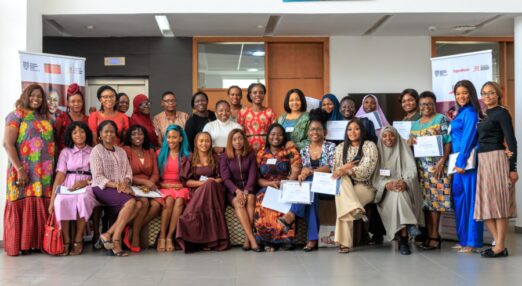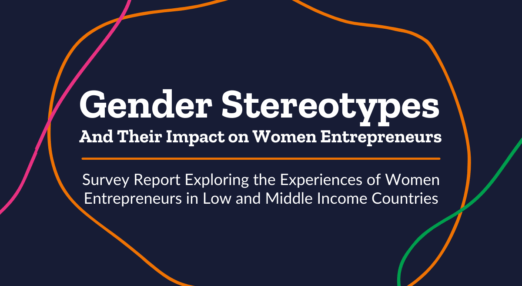Stronger collaboration is key for women entrepreneurs’ access to finance
This MSME Day, we're challenging the gender stereotypes that hold back women-owned micro, small and medium sized businesses.

This MSME Day, we’re calling on the investors, finance providers and banks working with women entrepreneurs in low and middle income countries to commit to tackling the pervasive gender stereotypes that too often stymie the success of women-owned micro, small and medium sized businesses.
Monday 27 June is the United Nations’ MSME Day, a day aimed at raising awareness of Micro, Small and Medium-sized Enterprises (MSMEs) which are key contributors to sustainable development and the global economy. Formal and informal MSMEs account, on average, for seventy percent of total employment and fifty percent of GDP. Yet, in every country women are being held back from starting, growing and sustaining successful MSMEs by gender stereotypes. This creates a gender gap in entrepreneurship and stops economies from reaching their potential.
We work with women entrepreneurs running MSMEs in low and middle income countries. The women we work with consistently say that access to finance is their biggest barrier and gender stereotypes have limited their opportunities for business growth.
Last year, we surveyed the women entrepreneurs we work with about the impact gender stereotypes have had on their lives and businesses. 70% of them told us that gender stereotypes have negatively affected their work as entrepreneurs and 63% believe that gender stereotypes affect how seriously they are taken as business owners, which could make it more challenging to get investors. In fact, only 16% reported that they had secured an investment or a loan from banks, whilst just 6% had been able to access a business loan from a financial services company.
One woman entrepreneur told us:
Financial institutions like banks and investment agencies express negative views about women’s capabilities, take a back seat in understanding women entrepreneurs, and are not ready to negotiate with them. Sometimes making them understand a business idea itself is a problem.
Other issues such as financial literacy can also create barriers for women entrepreneurs accessing finance, which is why we’re currently piloting an Access to Finance programme to support their knowledge and confidence on the topic. The programme offers online or hybrid training courses to women with established businesses that have a vision for growth and a need for finance. It supports women entrepreneurs to plan, pitch and negotiate with potential investors. These are skills that can make all the difference for women entrepreneurs in securing finance.
Whilst upskilling women is important, it is absolutely critical that investors and finance providers challenge their own biases and fix systems which hold women back. As we continue advocating for policy environments that promote women’s entrepreneurship, we urge financial providers and banks to take action to end these gender stereotypes.
We encourage them to learn about the ways in which gender stereotypes affect their own work at different levels and establish policies, goals, targets and accountability mechanisms to address these challenges. We call upon them to listen to women entrepreneurs and to collaborate with experts working with them and partner on programmes such as ours that promote gender equality, eliminate gender stereotypes and promote gender balance in entrepreneurship.
Join us in supporting women entrepreneurs this MSME day by tackling gender stereotypes.
-

Why women entrepreneurs?
Women's economic equality is a human right.
Read more
-

Corporate and Institutional Partnerships
Purpose-designed collaborations that advance women's entrepreneurship.
Read more
-

Gender Stereotypes and Their Impact on Women Entrepreneurs
Survey report exploring the experiences of women entrepreneurs in low and middle income countries, 2021
Read more